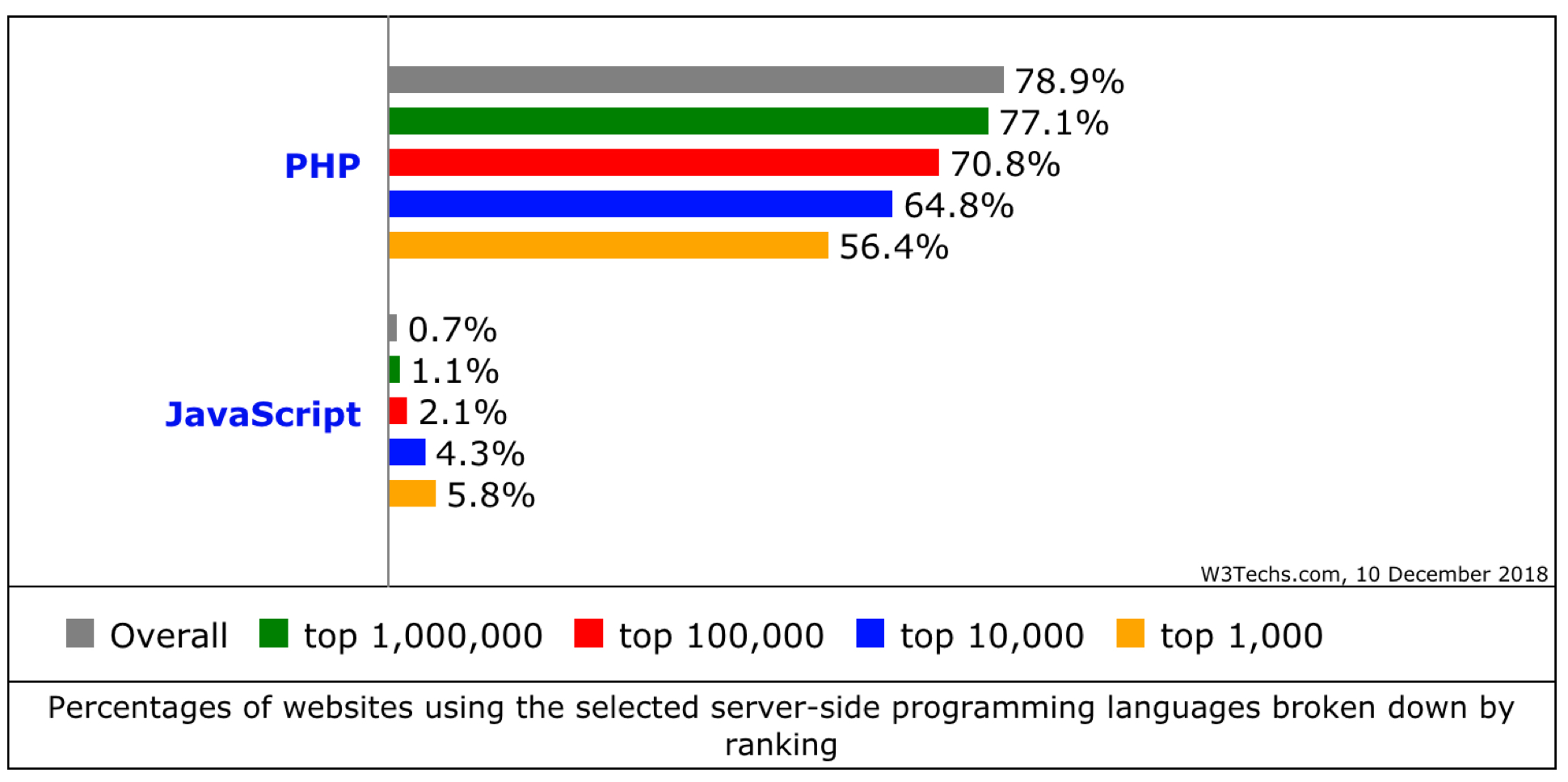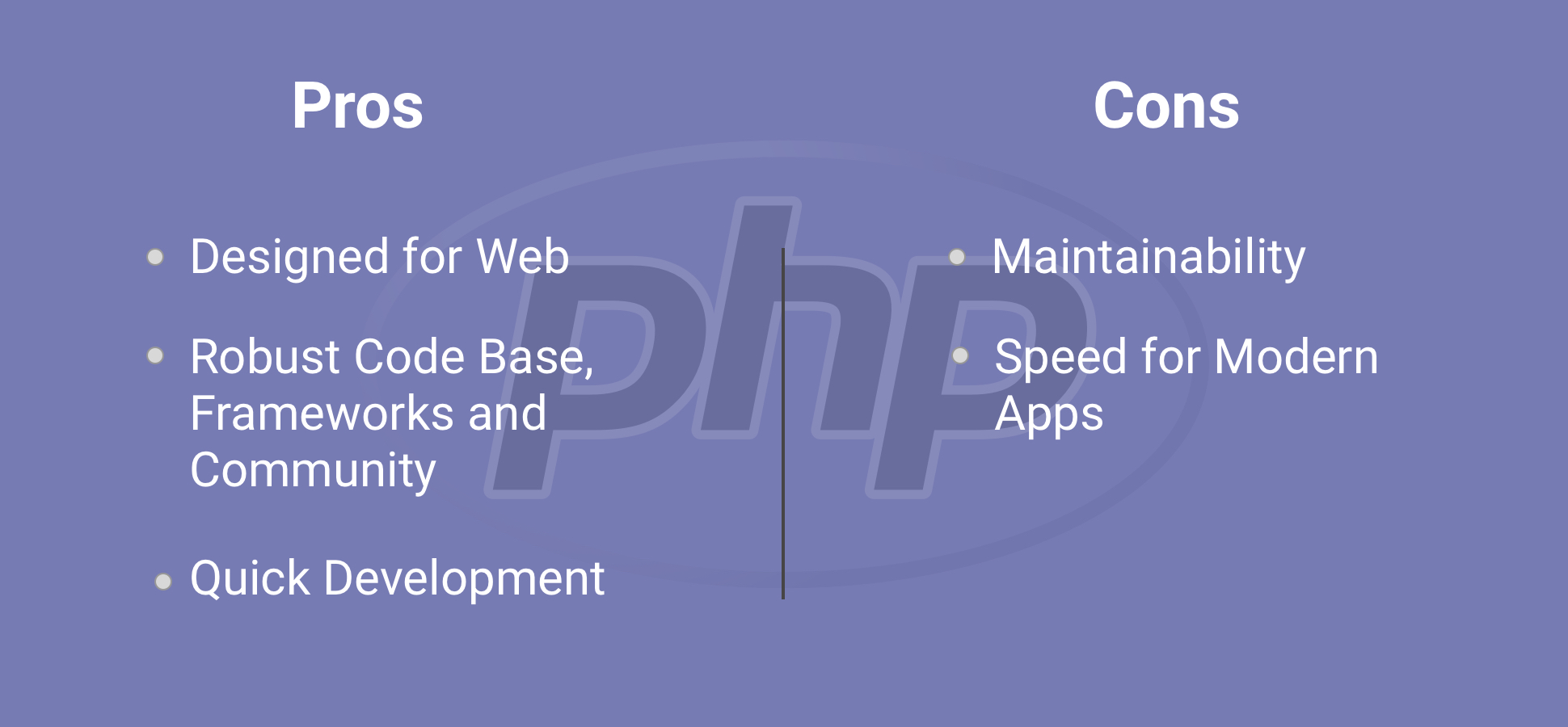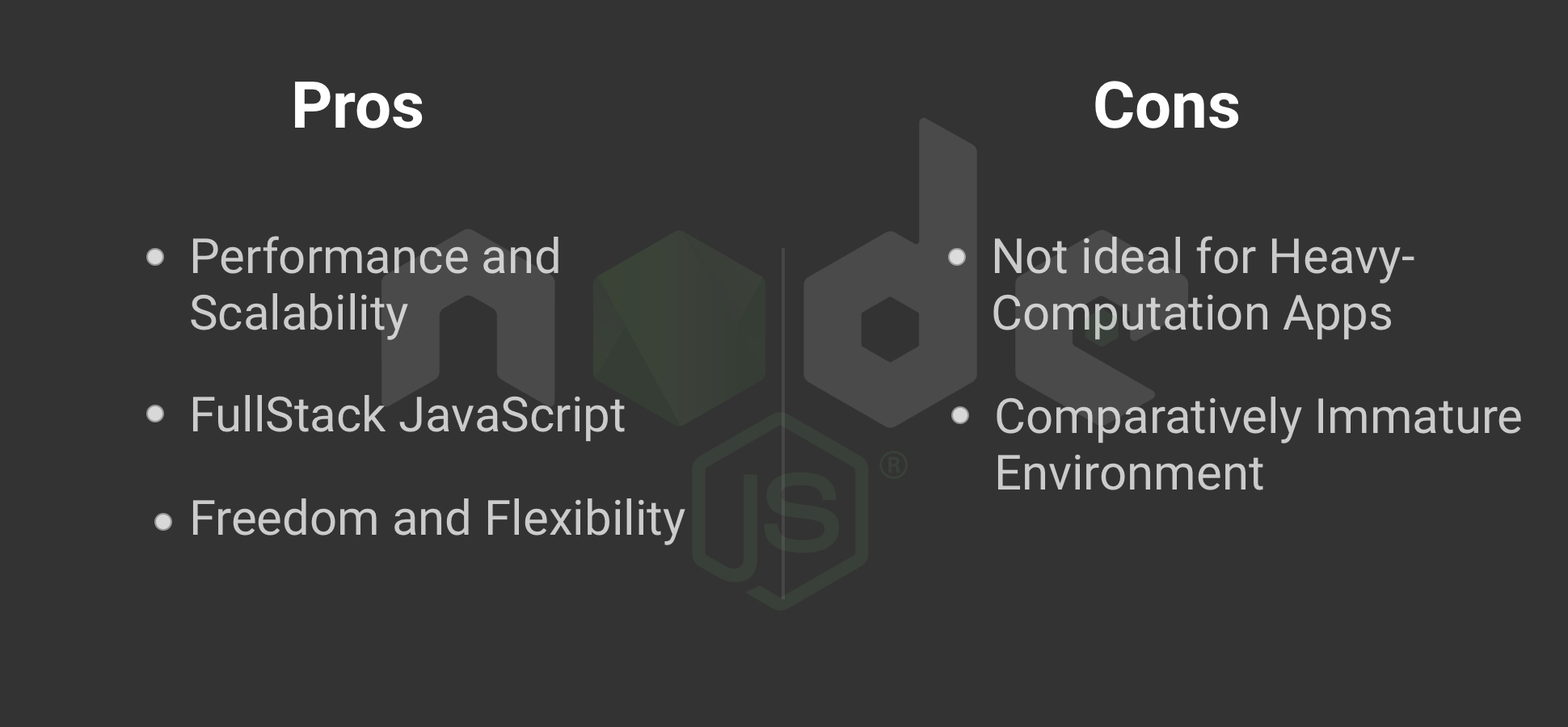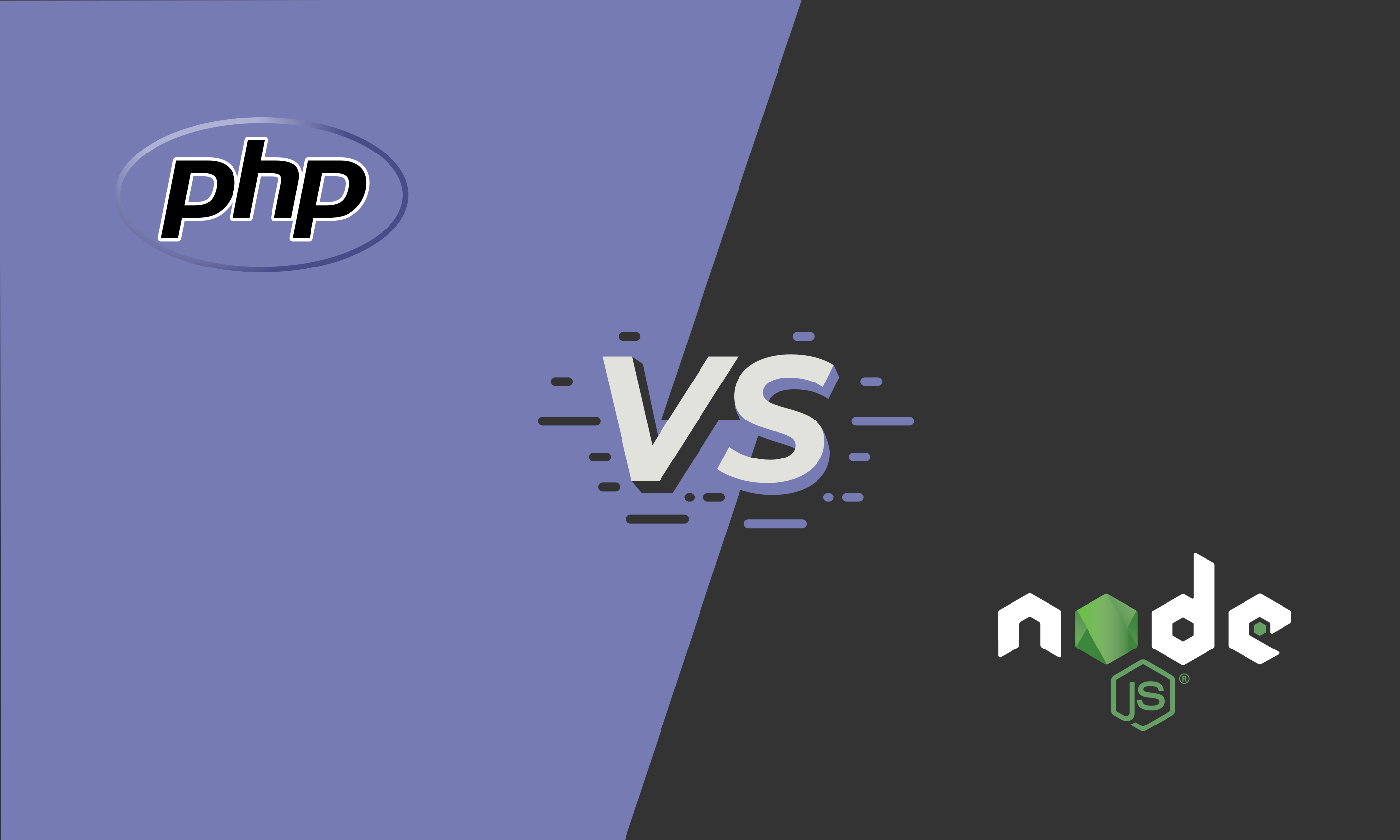Posted on
December 10, 2018
Updated on
November 6, 2023
Read time
 8 mins read
8 mins read
Node.js was introduced in 2009, extending the purview of JavaScript – the old friendly frontend language. Since then, the number of its users have been proliferating like wildfire, and today, with the behemoths like Netflix, LinkedIn and Uber singing the praise of Node.js, it has become the fastest growing backend technology.
But before Node.js, the scene was entirely different. PHP was the undisputed ruler of server-side since the good old days of the web and it has been immensely successful!
Today, developers around the globe are using both of these technologies for different projects. Many advocates Node.js is the future of web development while many argue server side is the unspoken domain PHP. So, in this blog, we’ll discuss both the views – pros and cons of each and how using one for certain projects can reap you maximum benefit.
PHP Overview
Hypertext Preprocessor or popularly known as PHP is an open-source server-side scripting language. It was developed in 1994, one and a half decade before Node.js by Rasmus Lerdorf. And since then it has been a huge success. A survey by W3Tech revealed that almost 79% of the websites in their data are made using PHP. Further, the ever-increasing popularity of content management systems like WordPress, Drupal, WooCommerce and Shopify portraits how PHP has covered the backend under its wings.


(Source – W3Tech)
Node.js Overview
Node.js was created by Ryan Dahl in 2009 which enabled building backend application with javascript rather than using the traditional technologies – PHP, C#, Python or PERL. This made it possible to build an application with a single language across the stack. Node.js is built on Chrome’s V8 JavaScript engine and known for being asynchronous, event-driven and nonblocking.
PHP vs Node.js – The Key Difference
Synchronous and Asynchronous
One of the key difference that separates the PHP and Node.js is the way they execute the codes.
PHP has been known for synchronous execution of codes. As per the term suggests this backend language executes the codes in sequence (synchronization), so it doesn’t matter how long a function takes to execute, it won’t move to the next one until it’s completed.
However, Node.js is something opposite of that. It is asynchronous which means it does not execute the codes in sequence. If one function of the code takes time to execute, it will send it to the queue and move on to the next one. Thus, the user does not have to wait until the completion of the previous code.
Frameworks
Ask any developer – what is the best thing ever happened to the web development world? The answer would be “frameworks!”
Frameworks have made life easier by speeding up the development process and helping developers to write structured, reusable and maintainable codes. So, while considering between PHP vs Node.js, frameworks play an important role.
When it comes to PHP, there is a huge list of frameworks at your disposal. Just name it – Laravel, Codeigniter, Symphony, CakePHP, FuelPHP, Phalcon and the list goes on.
In fact, these frameworks are so popular that they have established their own domain in the web development industry. Each of these frameworks has created a niche of their own. You can even easily find a developer or web development company who has expertise in that particular niche. On the other hand, content management systems such as WordPress, Joomla, Drupal, Magento, WooCommerce and Shopify allow someone with little or no technical knowledge to create and manage blogs and e-commerce websites.
When it comes to Node.js, we see a growing number of frameworks along with its growing community. Although you may not get the options as varied as PHP, some of the some of the well-known frameworks are – Express, Meteor.js, DerbyJS and Sails.js
Databases
PHP was created to interact with the traditional/relational database. That’s the reason it works so well with MYSQL, PostgreSQL and MariaDB.
While Node.js is great for using NoSQL databases such as MongoDB and CouchDB as well as graph database systems like Neo4j with JSON. Although this can be done with PHP too, it is far more convenient with Node.js.
Pros of PHP
Designed for Web
PHP was developed specifically for the web, unlike its compeers Java and Python. This means it is intrinsically equipped to work with HTML, servers and database. And this is one the characteristic that has made it a perfect server-side solution. PHP also works perfectly with intensive web applications that require high computing and server-side rendering.
Robust Code Base, Frameworks and Community
PHP has been here for 20+ years now. You know what does that mean? It means you get a massive community. And rich codebase. And documentation. And frameworks!
Selecting PHP for building your website or web application gives you a variety of frameworks and CMS such as WordPress, Joomla, Drupal, Laravel, Symphony and more. These platforms and frameworks also allow you to develop and deploy an e-commerce website or blog efficiently without any hassle.
Quick Development
Apart from the rich code base, another thing that PHP is known for is its ease of deployment and compatibility with hosting services. Powering almost 79% of the web in the world and being an industry standard for the past two decades, it supports all physical or virtual servers.
Cons of PHP
Maintainability
One of the issues with PHP is that sometimes the maintainability of codes can get worse. The reason being PHP is liable to mix the HTML and language syntax inside the HTML files. Thus, it causes dire issues when extending and adding new functionality.
Speed Issues for Modern Apps
Saying PHP apps are slacker will be extremely wrong. But when it comes to developing modern-day apps like Single Page Applications, Node.js is the first choice of the developers. The reason being – JavaScript runs in the browser that makes the execution of small tasks swift and smooth.

Pros Of Node.js
Performance and Scalability
As discussed above the asynchronous and non-blocking feature of Node.js is what makes it fast as well as enables it to serve numerous concurrent events at a time. By adoping Node.js development, one can build scalable server-side applications that utilize the maximum capacity of the of a CPU device. This is what makes Node.js perfect for real-time applications, single page applications and data-driven applications.
FullStack JavaScript
JavaScript is the ideal client-side language used in modern web applications. And with Node.js developers can even employ this frontend language to build server-side applications. This means one language can be used in the entire project which results in better coordination among the team, minimal bugs and better maintenance.
Freedom and Flexibility
Node.js provides freedom and flexibility to the developers when it comes to choosing the architecture and pattern as there are no dire guidelines. Also, the developers have access an unfathomable archive of NPM to choose from making the development process easier and fast.
Cons of Node.js
Not ideal for Heavy-Computation Apps
We know, asynchronous nature enables execution of simple functions such as reading and writing database queries efficiently. However, the same single-threaded environment also serves as a drawback. In many instances, while executing CPU intensive tasks, Node.js applications might get sluggish.
Comparatively Immature Environment
Node.js has a plethora of amazing NPMs for developers. Thanks to the huge community of developers contributing to it. However, not all Node.js modules in the NPM registry are stable and of the utmost quality. There are numerous untested and inferior modules and tools that may cause issues for the project. Though Node.js has introduced npm-audit to solve this, it is quite immature compared to PHP.

Which One Perfect for your Project, PHP or Node.js?
Now the whole comparison of Node.js vs PHP boils down to this – which one is a better server-side technology for your project.
Choose Node.js if
- You need to build a dynamic single page application
- Real-Time Applications such as instant messengers
- You are using frontend technologies such as – Angular and React (Software stacks – MEAN/MERN)
Choose PHP if
- A blog or e-commerce website with CMS
- Ease of deployment and integration
- Goes perfectly with LAMP stack (Linux Apache, MySQL, PHP)
Wrapping Up
To wrap up, both PHP and Node.js can serve as a great server-side language. Both have some pros, both have some cons but the amazing thing is both are created by intellects to make the web development better. While selecting the technology the question shouldn’t be which one is better but which one can serve your project needs in a better way. Understanding your project and business logic can give you a clear idea about selecting the right technology for your project.
Moreover, one more important thing to consider is the skills and proficiency of the developers using the technology, how they use them and apply to the project. We here at Techuz have a talented pool of PHP and Node.js developers. If you are looking for a nodejs development company of mavens to work on your project or still couldn’t figure out which technology will work for you, feel free to drop us a text.






